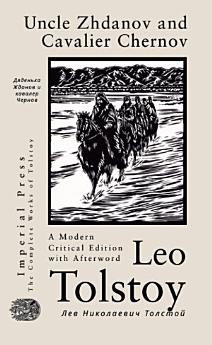Uncle Zhdanov and Cavalier Chernov
Despre această carte electronică
"Uncle Zhdanov and Cavalier Chernov," or "Дяденька Жданов и кавалер Чернов" in Russian, was penned in 1853 . Although intended for Tolstoy's envisioned "Военный листок" (Military Leaflet) journal, which never materialized, the story remained unpublished during his lifetime, finally seeing print posthumously in 1928 . The narrative, based on Tolstoy's direct experiences and interactions with soldiers during his service in the Caucasian army in the 1850s, presents two contrasting figures: Chernov, a lively, self-assured recruit, and Zhdanov, a smaller, melancholic, and ultimately resigned young man. It explores their differing responses to the harsh discipline and injustices of military life.
The creation of "Uncle Zhdanov and Cavalier Chernov" during Tolstoy's Caucasian period (1851-1854) places it within his formative years as a writer, deeply influenced by his military service. Its original purpose for a "Military Leaflet" journal suggests Tolstoy's early intention to depict the realities of soldiering, a theme he would later explore in his "Sevastopol Sketches" . This narrative offers a stark portrayal of the brutalizing effects of military life on individual psyche, contrasting the outward adaptation of Chernov with the profound, internal suffering and eventual resignation of Zhdanov. The story delves into themes of conformity, individuality, and the crushing power dynamics within the military hierarchy, where arbitrary beatings and unchecked authority become the norm.
This critical reader's edition presents a modern translation of the original manuscript, crafted for the modern reader with clean, contemporary language and simplified sentence structures that clarify his complex Russian phrasing and specific antiquated references. Supplementary material enriches the text with autobiographical, historical, and linguistic context, including an afterword by the translator on Tolstoy’s personal history, impact, and intellectual legacy, an index of the philosophical concepts he employs—emphasizing Existentialism and influence by Schopenhauer—a comprehensive chronological list of his published writings, and a detailed timeline of his life, highlighting the personal relationships that shaped his philosophy.











